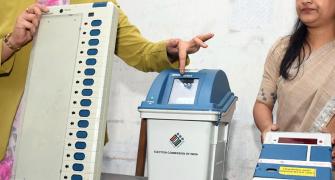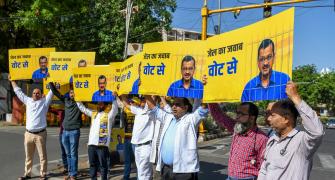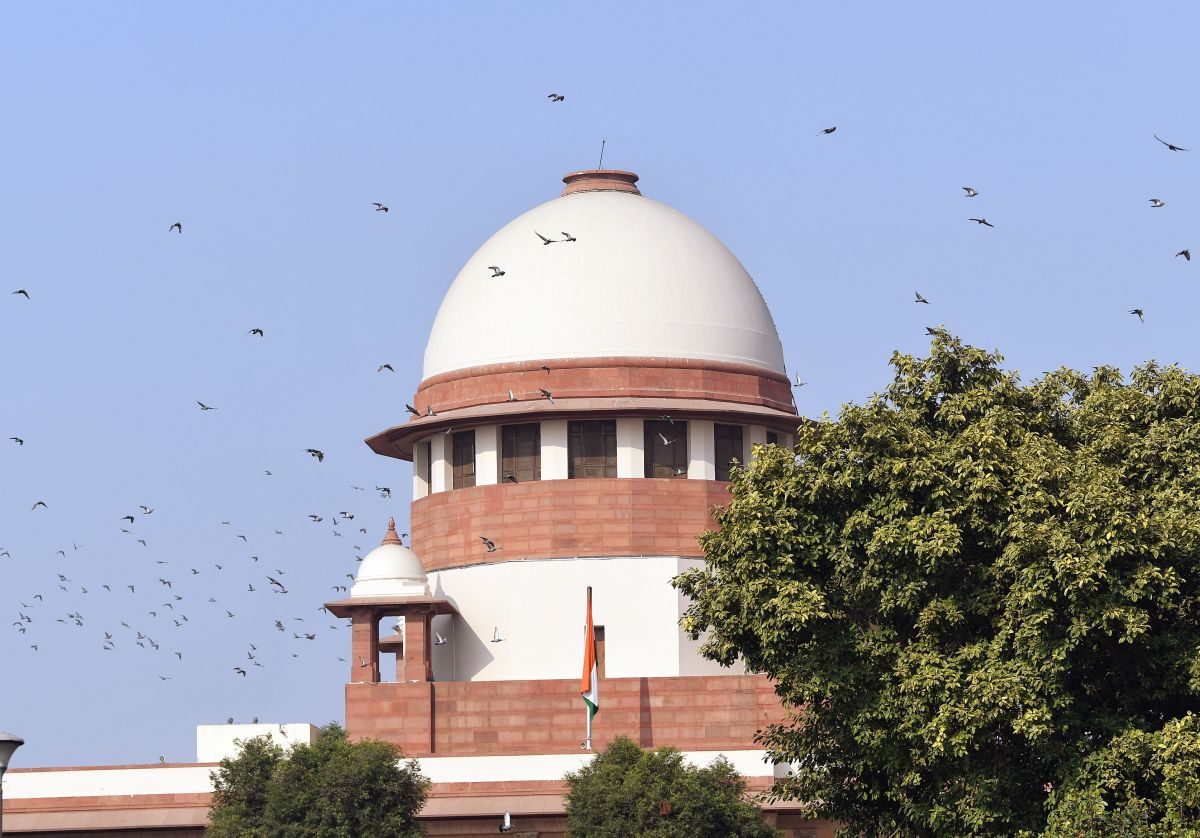The Supreme Court held on Monday it has the discretion to dissolve a marriage on the ground of “irretrievable breakdown” in exercise of its plenary power under Article 142 (1) of the Constitution and can grant divorce by mutual consent while dispensing with the 6-month waiting period mandated under the Hindu Marriage Act, 1955.

Article 142 of the Constitution deals with enforcement of decrees and orders of the apex court to do "complete justice" in any matter pending before it. As per Article 142(1), a decree passed or an order made by the apex court is executable throughout the territory of India.
Section 13-B of the Hindu Marriage Act deals with divorce by mutual consent and sub-section (2) to this provision provides, after the first motion has been passed, the parties would have to move the court with the second motion, if the petition is not withdrawn in the meanwhile, after six months and not later than 18 months of the first motion.
A five-judge constitution bench headed by Justice S K Kaul said grant of divorce by the apex court on the ground of irretrievable breakdown of marriage is not a matter of right, but a discretion which is to be exercised with great care and caution, keeping in mind several factors ensuring that ‘complete justice' is done to both parties.
The bench was dealing with questions, including whether the top court can grant divorce in exercise of power under Article 142(1) of the Constitution when there is complete and irretrievable breakdown of marriage in spite of the other spouse opposing the prayer.
“This question is also answered in the affirmative, inter alia, holding that this court, in exercise of power under Article 142(1) of the Constitution of India, has the discretion to dissolve the marriage on the ground of its irretrievable breakdown,” said the bench, also comprising Justices Sanjiv Khanna, A S Oka, Vikram Nath and J K Maheshwari.
“This discretionary power is to be exercised to do ‘complete justice' to the parties, wherein this court is satisfied that the facts established show that the marriage has completely failed and there is no possibility that the parties will cohabit together, and continuation of the formal legal relationship is unjustified,” it said.
The bench said as a court of equity, the top court is required to balance the circumstances and the background in which the party opposing the dissolution is placed.
Answering the question about the scope and ambit of power and jurisdiction of the apex court under Article 142(1) of the Constitution, the bench held the top court can depart from the procedure as well as the substantive laws, as long as the decision is exercised based on considerations of fundamental general and specific public policy.
“While deciding whether to exercise discretion, this court must consider the substantive provisions as enacted and not ignore the same, albeit this court acts as a problem solver by balancing out equities between the conflicting claims. This power is to be exercised in a ‘cause or matter',” it said.
The apex court also dealt with another question as to whether it can, while hearing a transfer petition or in any other proceedings, exercise power under Article 142(1), in view of settlement between the parties, and grant a decree of divorce by mutual consent dispensing with the period and procedure prescribed under section 13-B of the Hindu Marriage Act.
It also considered if it can quash and dispose of other proceedings under the Domestic Violence Act, section 125 of the CrPC or criminal prosecution under section 498-A and other provisions of the Indian Penal Code.
While section 125 of the Code of Criminal Procedure (CrPC) pertains to order for maintenance of wives, children and parents, section 498-A of the IPC deals with offence of subjecting a married woman to cruelty.
“In view of our findings on the first question, this question has to be answered in the affirmative, inter alia, holding that this court, in view of settlement between the parties, has the discretion to dissolve the marriage by passing a decree of divorce by mutual consent, without being bound by the procedural requirement to move the second motion,” the apex court said.
It said section 13-B of the Hindu Marriage Act does not impose any fetters on powers of the apex court to grant a decree of divorce by mutual consent on a joint application, when the substantive conditions of the section are fulfilled and the court, after referring to the factors mentioned above, is convinced and of the opinion that the decree of divorce should be granted.
It said this power should be exercised with care and caution, keeping in mind the factors stated in two previous judgements delivered by the apex court.
“This court can also, in exercise of power under Article 142(1) of the Constitution of India, quash and set aside other proceedings and orders, including criminal proceedings,” the bench said.
In its 61-page verdict, the top court also dealt with the issue of whether a party can directly canvass before it the ground of irretrievable breakdown by filing a writ petition under Article 32 of the Constitution.
Referring to a verdict delivered earlier by a two-judge bench of the apex court, the bench said it was rightly held that any such attempt must be spurned and not accepted, as the parties should not be permitted to file a writ petition under Article 32 or Article 226 of the Constitution before the high court and seek divorce on the ground of irretrievable breakdown of marriage.
“The reason is that the remedy of a person aggrieved by the decision of the competent judicial forum is to approach the superior tribunal/ forum for redressal of his/ her grievance. The parties should not be permitted to circumvent the procedure by resorting to the writ jurisdiction under Article 32 or 226 of the Constitution of India, as the case may be,” it said.
The bench said a party cannot file a writ petition under Article 32 and seek relief of dissolution of marriage directly from the apex court.
“The legislature and the courts treat matrimonial litigations as a special, if not a unique, category. Public policy underlying the legislations dealing with family and matrimonial matters is to encourage mutual settlement...,” it said.










